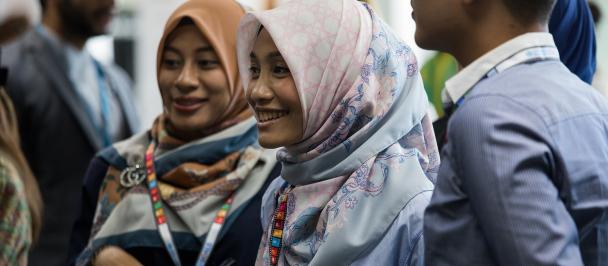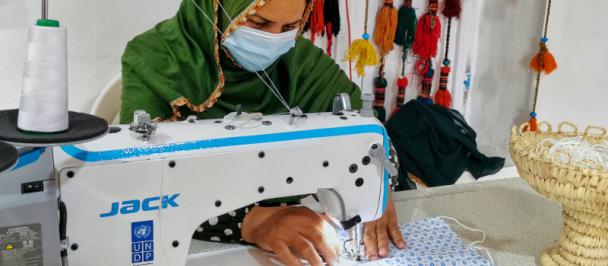The 2030 Agenda for Sustainable Development has paved the way for a new type of multilateralism. From economic growth to environmental protection, the issues covered in the Sustainable Development Goals (SDGs) require greater collaboration, coordination, and commitment.
A principled and effective multilateral system offers a unique platform to tackle global and local challenges that appear to grow in scale and complexity, including protracted humanitarian crises, widening inequality, and the increasing frequency and intensity of climate change-induced disasters.
The shared responsibility of Member States and the UN development system (UNDS) should extend beyond the adoption of the 2030 Agenda; it should also be practiced in the way the agenda is financed and delivered.
Member States and other funding partners provide financial contributions to the UN to achieve the SDGs. While it’s encouraging that contributions have grown, there’s a worrying trend of Member States preferring to fund specific projects or activities of their interest—so-called ‘earmark’ funding. In 2016, the proportion of earmarked contributions was 54 percent. Core contributions, the most flexible forms of funding, have stagnated or declined in some cases. In UNDP the proportion of core to non-core contributions reached as low as 12 percent in 2017.
This trend not only limits the strategic and flexible use of funding by the UNDS, but also invites competition and mandate drift because agencies have to fight to secure funding.
A bold financing proposition
To unlock the full potential of the UNDS, the Secretary-General has proposed a Funding Compact. It puts forward a set of commitments focusing on Member States increasing the level of quality funding; core, pooled and thematic funding. For its part the UN development system will enhance transparency, visibility, efficiency, and evaluation and reporting on collective results.
It is an incredible opportunity for the UNDS and the international community to increase effectiveness and impact.
The Funding Compact seeks to improve the quantity and quality of budgetary resources for UN development operations. Funding with less earmarking and fewer restrictions allows for more flexibility and field orientation. This will allow the UNDS to respond to needs more holistically, flexibly, promptly, and effectively.
The Funding Compact also aims to enhance the UNDS’s visibility, normative responsibility, and accountability. It repeats the UNDS’s desire to better articulate its programmatic opportunities and results through clear and transparent communication with the Member States on funding flows and uses. Fortifying monitoring and evaluation can foster interactive engagement and build stronger trust between the UNDS and Member States.
The Funding Compact also encourages greater collaboration and innovative partnerships among UN organizations and the private sector or civil society. More flexible and pooled funds will allow for more joint activities and collaboration across the UN in a harmonized and coherent manner.
Fulfilling the promise
The Member States and the UN development system wholeheartedly engaged in close consultations and finalizing specific commitments with concrete and measurable indicators and baselines. One can have an elaborate matrix of indicators and targets to track the collective commitments on both Member States and the UN side. However, without sturdy and broad-based political support, the Compact will not lead to significant change.
Both Member States and the UNDS need to communicate the value of the Compact to decision-makers and influencers. With a budget of US$32 billion (similar to the US State of Pennsylvania), a successful Funding Compact would give the international community a strong and reliable UN development system focused on results.
Adequate, flexible and predictable funding contributions to the UN development system make it possible to:
- plan strategically and ensure no-one is left behind
- find coordinated and integrated solutions
- act quickly and decisively when natural or human-caused disaster hits
- leverage additional development and climate finance
Those of us in the UN development system have to ensure that Member States and other donors continue to trust us. We must always demonstrate that we are an effective, reliable and efficient partner on the road to 2030. If we do this there is no convincing reason why the UN development system should not receive quality funding as other multilateral institutions do.
A recent report[1] revealed that “69 percent of the Official Development Assistance resources channeled through the UN development system as earmarked contributions stands in stark contrast with the 7 to 23 percent share of earmarked resources in the funds channeled through other multilaterals, including the European Union (EU), and the World Bank Group”.
The Funding Compact is a non-binding document based on trust and voluntary commitment. It reiterates the shared responsibility of Member States and the UN development system to collectively achieve the SDGs. By refining the funding mechanism for development, the UN development system can effectively reinforce multilateralism and reaffirm the trust between Member States and the UN.
[1] https://www.daghammarskjold.se/publication/unds-2018/

 Locations
Locations




